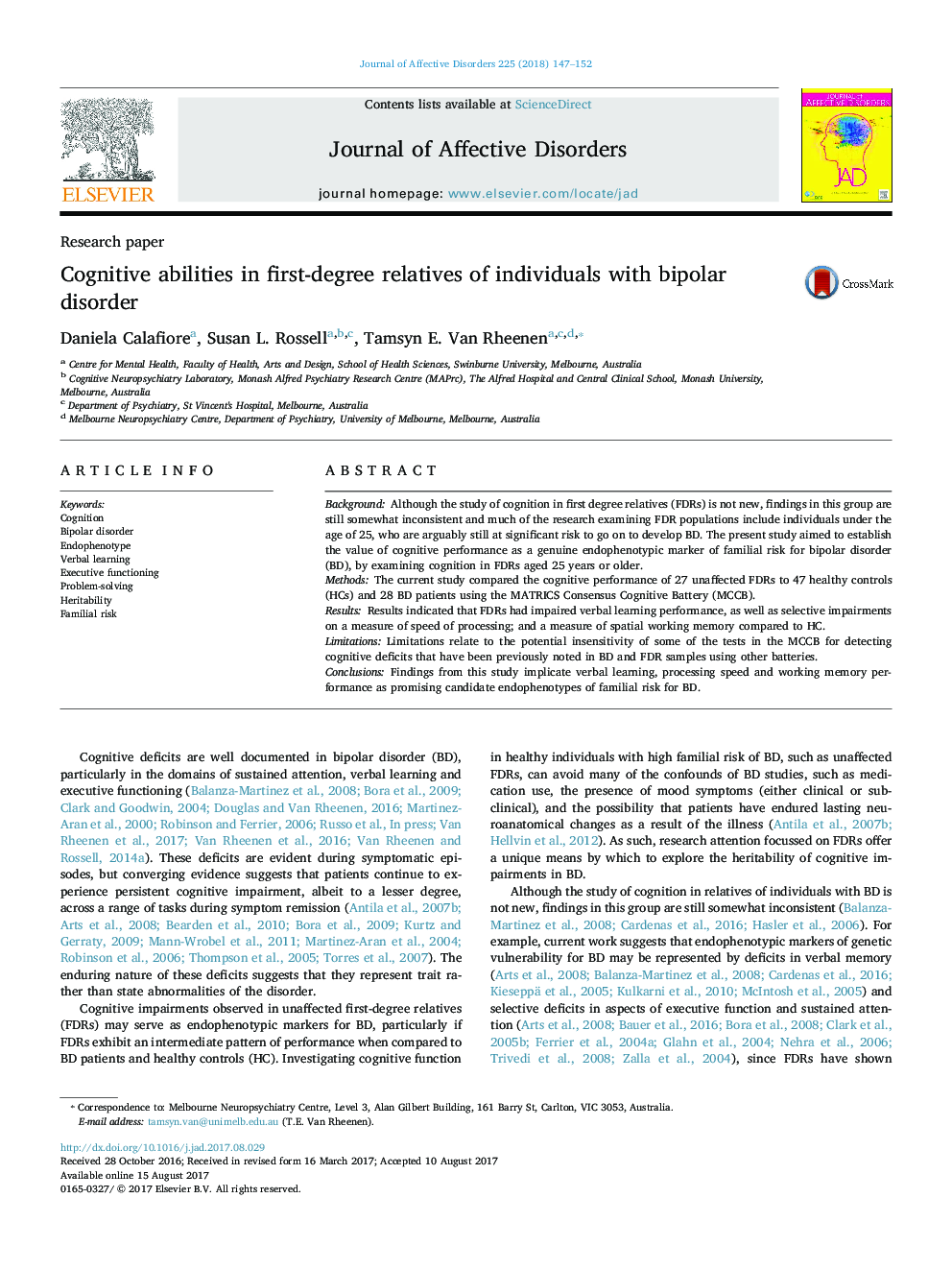| کد مقاله | کد نشریه | سال انتشار | مقاله انگلیسی | نسخه تمام متن |
|---|---|---|---|---|
| 5721701 | 1608100 | 2018 | 6 صفحه PDF | دانلود رایگان |
- Cognitive comparison of bipolar disorder (BD), first-degree bipolar relatives (FDRs) and healthy controls (HC).
- Only FDRs over the age of 25 were included in the sample.
- FDRs showed impairment on the verbal learning domain compared to HCs.
- Impairment noted in FDRs on specific working memory and processing speed measures.
- FDRS exhibited a trend for enhanced problem-solving compared to HCs.
BackgroundAlthough the study of cognition in first degree relatives (FDRs) is not new, findings in this group are still somewhat inconsistent and much of the research examining FDR populations include individuals under the age of 25, who are arguably still at significant risk to go on to develop BD. The present study aimed to establish the value of cognitive performance as a genuine endophenotypic marker of familial risk for bipolar disorder (BD), by examining cognition in FDRs aged 25 years or older.MethodsThe current study compared the cognitive performance of 27 unaffected FDRs to 47 healthy controls (HCs) and 28 BD patients using the MATRICS Consensus Cognitive Battery (MCCB).ResultsResults indicated that FDRs had impaired verbal learning performance, as well as selective impairments on a measure of speed of processing; and a measure of spatial working memory compared to HC.LimitationsLimitations relate to the potential insensitivity of some of the tests in the MCCB for detecting cognitive deficits that have been previously noted in BD and FDR samples using other batteries.ConclusionsFindings from this study implicate verbal learning, processing speed and working memory performance as promising candidate endophenotypes of familial risk for BD.
Journal: Journal of Affective Disorders - Volume 225, 1 January 2018, Pages 147-152
